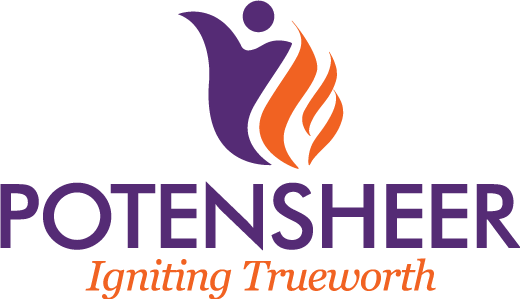HAVE YOU ANSWERED YOUR NON-FINANCIAL RETIREMENT QUESTIONS?
For many employees, planning for retirement is synonymous with making pension contributions from their salaries. Their ultimate plan comprises the use of pension savings and severance pay – for those eligible upon retirement – to finance their post-employment cash needs. A few individuals however, take advantage of retirement planning to ponder the deeper financial aspects of life post-employment. They evaluate their money-habits and wealth creation strategies, and make practical adjustments to create the kind of financial future they desire. They use this opportune time to make bold decisions to once and for all break away from their past mistakes and undesirable cycles, and chart a new financial path for themselves. By the time they leave employment, they not only have, but also apply a wealth of knowledge in financial wellness, managing money in transition, and making suitable investments for their desired post-employment lifestyle and social status.
Indeed, financial matters comprise a significant part of planning for retirement, but that is only one side of the coin. Beyond financial planning, employees ought to take a life-audit and define with in-depth clarity the non-financial aspects of their desired retirement experience. These include mental, emotional, and physical wellness considerations: how will I handle the pressures and demands of transition while maintaining mental focus and emotional balance? what are the simple yet practical ways of maintaining physical health as I tackle the changes ahead? what daily routines should I adopt to ensure all round wellness? how will I stay socially connected? and who or what will comprise my support system? Alongside these, are the vital questions regarding purpose and identity: who am I truly? what is my purpose? what will I spend my time on – what will I do? what matters to me most and how will I remain relevant and continue to add value? Finding answers to these questions is a vital part of ensuring success during and beyond transition from employment.
After many years of work, most people identify themselves with the role they serve or the position they hold. The question of identity can run so deep – especially in regard to prestigious and powerful positions – that disconnecting from a particular role could degenerate into a self-esteem issue. Equally important, is the fact that an individual’s desire to do something personally fulfilling, add value, make a difference, and get appreciated for doing something worthy, does not end with an exit from employment. If anything, the void left by a shift from a busy schedule serves to heighten the desire to remain relevant and fulfilled, hence the need to answer the life purpose question.
Majority of employees nearing retirement postpone addressing the non-financial questions until too late in the process. This creates a sure recipe for disappointing and sometimes depressing failures in hurriedly conceived ventures and lifestyle choices, birthing a life of regrets, loneliness, idleness, a sense of worthlessness, boredom, and a generally unfruitful retirement experience. Worse still, those in their 20’s, 30’s, and 40’s, consider retirement too far off to warrant advance let alone proper planning.
Exiting employment is a life project that ought to be planned and executed with the seriousness it deserves. Retirement is not an endless vacation of fun and travel as some people mistake it to be. A day comes when the “honeymoon” terminates and the excitement of “free at last!” gets overtaken by the realities of life outside employment. At this point, one finds themself asking: who are my friends? am I still relevant? what value can I add? what do I spend the next 20, 30, 40, or more years of my life on? Don’t let these questions catch you flat-footed!
Whether planning for an early or late transition from employment, prepare in advance, and prepare well. Many soon to be retirees I have spoken with, regret their failure to learn and plan for retirement when they were in their 30’s and 40’s. They confess that acquiring ‘wisdom for retirement’ in their 50’s robbed them precious time to maximize gains from this wisdom. Learn from their experience. Don’t make the same mistake. The best time to start preparing for retirement was the day you took your first job. The next best time is NOW. If you ever did a class on ‘the time value of money’, you know exactly what I am talking about! Learn early, plan early, and position yourself for a memorable post-employment experience. Begin to address and find answers to your non-financial retirement questions TODAY.
Written by Rosemary W. Ngigi. Rosemary is a Transformational Speaker, Purpose and Life Coach, Corporate Trainer, and Founder of Potensheer. She runs programs on Life Purpose, Workplace Engagement & Productivity, and Post-Employment Transition. For more information, reach her via rosemary.ngigi@potensheer.com / www.potensheer.com /
LinkedIn – Rosemary W. Ngigi / Facebook – Rosemary W. Ngigi

